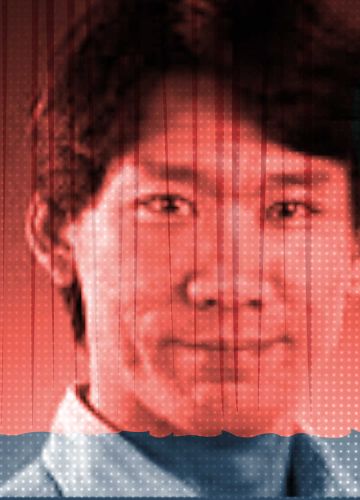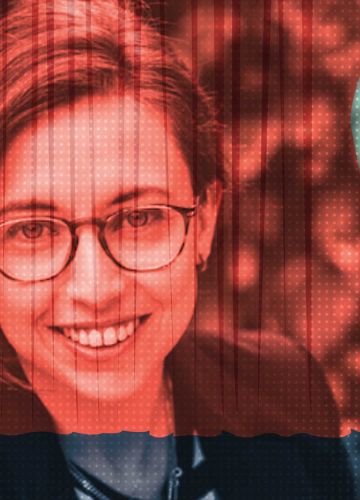Taking Livestreaming Seriously

Fang Kecheng

Huazong
Fang Kecheng: Hello, Huazong. I want to talk with you today about your Weibo livestreaming. I’m most interested in why you have a late-night, heart to heart livestream program. After watching a few episodes, it felt to me a bit like when I listened to late night radio show as a kid. I don’t know if that sounds accurate to you. How did you find yourself in this industry? And why did you choose livestreaming?
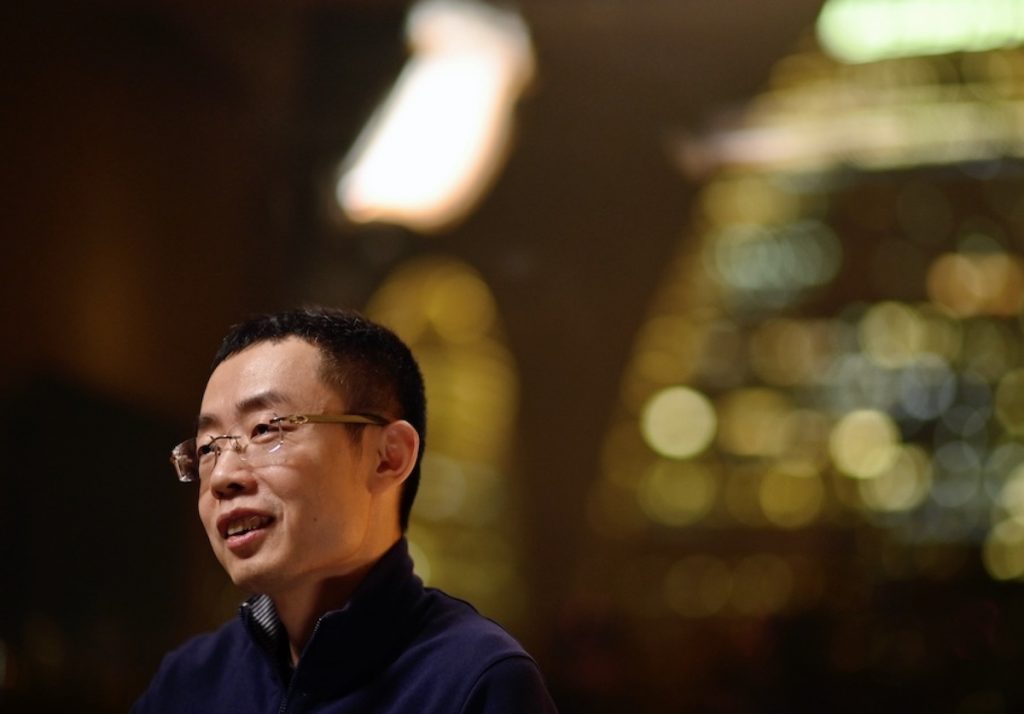
Huazong: Indeed, programs through live streaming have been the focus on my work recently. There are currently more than 120 issues archived for “replay.” And then there are some I did that afterward were removed, so in total I think there were about 140-150 sessions.
I have two types of live content. The first is the late-night radio you just mentioned, which I see as a kind of “tree hole”(树洞),where viewers can anonymously share some personal problems with us. [NOTE: A “Tree Hole” is a Chinese term for places on the internet where people tell their secrets. It originated from the South Slavic fairy tale, “The Emperor Has Goat’s Ears.”]
The other is one I started from the second half of 2021, in which I have one-on-one interviews with guests who have interesting stories to tell. This one is called, “People With Stories”(有故事的人).
Fang Kecheng: So it still begins with this type of heart to heart content, right?
Huazong: Yes, it started out as just this very unconscious way of talking. When I started, Weibo’s live streaming function was just something optional. Late at night, I would open the Weibo app and livestream as a way of chatting with people. Later on, Weibo improved its live streaming feature, and I asked them, “Why can’t we go live with multiple other people like with other live streaming apps?” Because I was the first to ask them for a co-broadcasting feature, this began as a sort of experiment.
I was wondering at the time whether it was even possible for livestreaming to be taken seriously as a form of content creation. And I’m still exploring whether this can be achieved. Many people think livestreaming is non-serious, and it’s hard to squeeze out anything valuable content-wise. I beg to differ. I think that once any technology matures, it’s possible for content creators to create things of value regardless of the types or genres of their output.
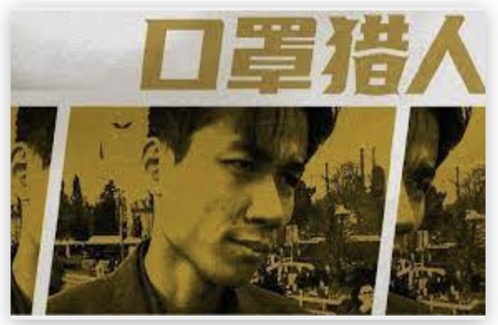
The biggest difference is that a podcast might require some editing and post-production. If this process is omitted, isn’t it just livestreaming? In fact, the biggest difference between livestreaming and traditional podcasts is that livestreaming has the direct participation of the comment section, which is a real-time interaction between the audience and the content creator.
The biggest difference between livestreaming and traditional podcasts is that livestreaming has the direct participation of the comment section, which is a real-time interaction between the audience and the content creator.
Fang Kecheng: What I find a bit surprising is that you talk about livestreaming as a way to do serious content output. The understanding I had before was that you’re offering a form of companionship. You broadcast live every day, every week, and people who are watching feel they have a kind of companionship. But based on what you just said, it seems that it’s not just about companionship, but the information shared is also serious and meaningful. Is that fair to say?
Huazong: Well, we can look at the two types of programs I mentioned before. First, the “People With Stories” series. My initial idea was to make it something like One Thousand and One Nights. I might invite one person with a story every day. This person might be a famous person or an ordinary person. I’ve interviewed people who work in agriculture. I’ve interviewed pilots. And I’ve interviewed people who have witnessed the boom and bust of cities in Cambodia. It’s like an interview with a journalist, only it’s in real time and the audience can participate and ask questions.
The second is the heart-to-heart type – the “tree hole” form of connection. I once joked that the questions most often asked are all about business matters. How to make money, that is. Financial problems. Next up are matters of the heart. And third are workplace problems. So, the heart-to-heart program is called “What’s Happening Tonight” (今夜连连看). There are five of us: me, Erzong, Sanye, Niushu, and Wuge. We form a panel. The five of us have different backgrounds, including finance, economy and investment, and also backgrounds in writing. We’ve become a dedicated group answering people’s questions.
We might ask the question whether “Weibo Q&A” (微博问答) is a serious form of content production. [NOTE: “Weibo Q&A” is a service allowing users to pay experts to answer questions.] If “Weibo Q&A” is, then we have a real-time version, and this should also be taken seriously.
Fang Kecheng: I agree. You mentioned that people’s problems are focused on money, the workplace and relationships. Do you feel it gets repetitive after doing so many shows? Is there sometimes a nothing-new-under-the-sun feeling?
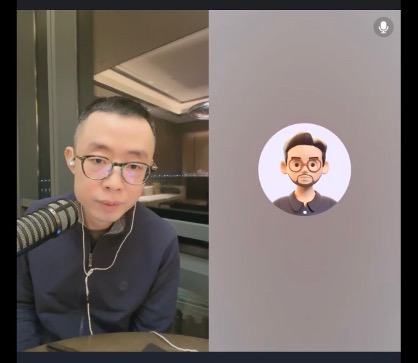
Huazong: After I had done more than a hundred sessions, I had invited around 3,000 people to use their microphones to talk to me (连麦). We once had a discussion at a forum about the topic of co-hosting, and most of us felt pretty much the same way. Most of the people we had co-hosted with had already had five to ten years of work experience after graduating from college, and many had already started families or were about to. Most were probably middle-class or upper middle-class workers. Actually, they were a group pretty representative of today’s China. I don’t mean to say that they were all on the same page on issues. They certainly had differing views on some issues. But they also had a strong shared understanding. You could say that they are quite similar in terms of the pressures they face, their desires and their values.
Fang Kecheng: Speaking of your audience, how did you go about growing it? Were they people who originally followed you? Or did they come along after you started livestreaming? Or did Weibo help you promote?
Huazong: That’s a very good question. For livestreaming, Weibo has sent traffic my way. But in my experience, driven traffic generally has a really low rate of conversion to followers (粉丝). That means it’s tough for people happening across to translate into real followers just because certain “tricks” have been designed in by the platform. They will disappear quickly. Those who are really engaged are usually the long-established fan base.
It’s interesting to note that viewers will share livestreams or make comments about the show in their own social media circles. This is the most effective way to grow followers and attract new ones.
Fang Kecheng: So their friend networks basically come from the same social strata.
Huazong: That’s right. What’s interesting is that livestreaming definitely spreads within the same social strata. But every time you gain followers this happens by breaking the circle (破圈). When you’re discussing matters of the heart, for example, it is actually much easier to break the circle because we all face the same emotional problems no matter what class we come from or how much money we have. [NOTE: “Breaking the circle is a popular online buzzword that refers to developing beyond an existing social media group or echo chamber.]
Fang Kecheng: So let’s track back a bit. Are people asking the same type of questions, or even repeating questions? What do you think is the significance of this?
Huazong: A lot of my audience isn’t in front of the screen most of the time. Some people like to listen to programs in the background, while they’re in bed or getting ready to fall asleep. So why do they like to listen to this type of program? I’m moved by a phrase many people have used. They’ll say something like: “When I hear these stories, it lets me know that I’m not alone in this world, and that the problems I face aren’t unique to me.” Because of my livestream they no longer feel all alone.
Fang Kecheng: I would guess this actually has something to do with the pandemic of the last two years. People need to be more connected in these circumstances.
Huazong: Yes.
Fang Kecheng: Do you have one or two people who are particularly memorable?
Huazong: Actually, there are quite a few different ones. The first one that comes to my mind is this person after I’d done more than 90 shows, and they attempted suicide during the livestream. The second half of the program became extremely difficult, as I was trying to figure out how to save him and to contact the police.
Fang Kecheng: Was the man saved afterward?
Huazong: He was. But we didn’t publicize it because we were afraid we might cause a suicide cluster, provoking people suffering from depression. I was deeply affected by this incident. Since that time I’ve avoided trying to comfort listeners suffering from mental illness. We are not professional therapists. We can’t be irresponsible when we’re giving advice or offering solutions. That was a very big warning.
Another person who deeply affected me was a father. One day, he went to the bathroom and opened the door to find his 12-year-old son masturbating. They both made eye contact and felt embarrassed. The father came on air and said: “This could have a negative impact on him. What should I do about it?” We discussed the situation. We talked about it quite seriously, not treating it as a joke. In fact, in the course of growing up, and I include my own adolescence, we encounter a lot of situations like this. Nowadays, living life in urban cities . . . . We can only rely on our personal experience and judgment to decide what to do. Which is not necessarily a good thing.
So, everyone needs help. They need to talk about problems with others. Human society is in an era of highly developed communication, but contrary to this trend, our demand to speak and to listen has been significantly suppressed. This disparity is actually huge, and it’s an extremely ridiculous situation. That’s my biggest takeaway, actually, after doing more than 100 livestreams.
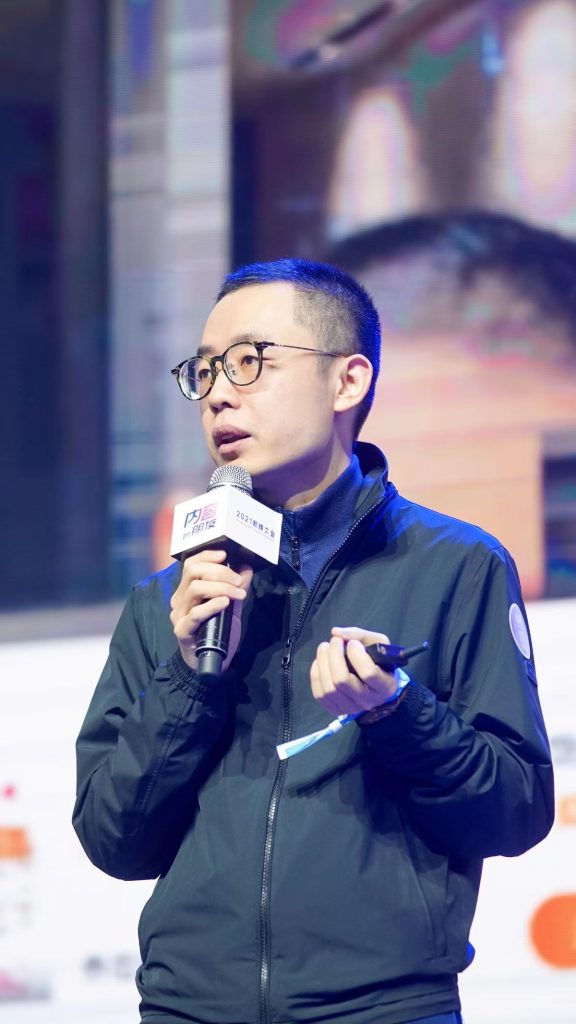
Of the two examples I talked about, the first one was CFO of a company that was about to go public. In fact, everyone thinks he should be very successful and capable. He shouldn’t have these problems. That day he probably was drinking and opened up on the air. In addition to being anonymous, the livestream connects to every soul who may be lonely.
Human society is in an era of highly developed communication, but contrary to this trend, our demand to speak and to listen has been significantly suppressed. That’s my biggest takeaway, actually, after doing more than 100 livestreams.
Fang Kecheng: I think that’s a great conclusion. As you were talking about this contrast, I was thinking that maybe in this era, although communication is very advanced, there is a huge gap between the rich and the poor, and between those who do and don’t have access. But as you said this person who attempted suicide could be someone with quite a high social status. And so we can say that even those who are doing rather well materially and socially can face a lot of pressure in terms of the right to speak and be heard.
Huazong: Yes. It’s a really interesting phenomenon. Several of us hosts of “What’s Happening Tonight” often talk about coming across very unexpected sorts of fans – people who in our opinion shouldn’t have the time or interest to listen to these types of conversations. But in reality, they are our listeners. So it’s really breaking into all social classes.
Fang Kecheng: You’ve just given a couple of examples. When you encounter these questions, how do you go about answering them? Do you prepare before you go on air? Or after the broadcast, do you search for relevant materials so that you can answer better next time? What do you do to improve yourself as a host?
Huazong: The only thing I do before I go on air is sleep. If I’m going to start at 9:30PM, I need to take a nap by eight o’clock at the latest and wake up at nine. Livestreaming is mentally taxing. Actually, it’s a form of torture. If you’ve been broadcasting for over a year, you’re definitely going to develop hemorrhoids [from all the sitting].
After the stream, I don’t review it. And I definitely try not to think about it or to watch it back. Many people ask why we don’t do a second cut, edit around the exciting stories and then re-release them. They talk about how many more shares the shows could have. I also tell other streamers that if they want to be really popular, they have to do this. But I don’t do it myself. Because if I don’t get out of the livestreaming content quickly I feel like it will become too much of an emotional burden for me. So after every livestream, I try not to think about the problems we’ve discussed. Also, some viewers can become a bit strange once they’ve connected with me. They might keep trying to remind me [about our exchanges] until I remember them. So, this is actually a form of self-protection for me as well.
Fang Kecheng: I understand. It’s this system that enables you to keep going past more than a hundred shows. In fact, the people talking about their problems aren’t looking for professional counselling. They know there are professional resources and places they can go for help. You just likened livestreaming to a “tree hole.” A tree hole doesn’t answer. But it’s a place where people can speak. And here, there are responses too.
Huazong: This is why I’ve always said that the value in our being there isn’t in being a mentor, and telling them how they should live their lives. It’s about having a place to talk to when they’re having a hard time. Our value is in just being there, not in trying to solve problems. Of course, we also think that listening might offer the solution.
Key Opinion Leaders VS Influencers
Fang Kecheng: Do you feel the livestreaming you are doing is a big change compared to the content you produced before? Because the content you did before was likely more information-oriented, exclusive stuff, or even exposing shady dealings – basically about providing information that was missing or scarce. In fact, just as important as information is the way media can also offer emotional value, and give people emotional comfort. Especially these last two years, we really need comfort. Did you experience this transition from information to emotion yourself?
Huazong: I see it from a slightly different perspective. We actually had the phrase “Key Opinion Leader” (KOL) to describe ourselves in the past. We gave our opinions, and people followed us because of them. But then the word “influencer” appeared, meaning someone who has influence. Doing livestreams you become an influencer. Because livestreaming isn’t just about your opinion on a matter, but also means investing your “persona,” which is a bit like certain celebrity icons or “idols” in the entertainment industry.
I’ve been thinking about this question and haven’t come to a clear conclusion. But I think that this is the biggest contrast with the past forms of content production. For example, when I used to write, investigate, and make documentaries, people would establish a connection with me based on the content I produced. Now it’s different. You go directly to the audience. Perhaps in the end, the choice every content creator faces is what form they are going to use to enter this space. When we post a Q&A or write an article on the web, it’s just a single thread. But when we appear as influencers, that’s when we enter a different space.
Kecheng Fang: Indeed, in the social media era there’s a more intimate connection between the influencer and the follower. It’s a global trend. People aren’t that interested in traditional cold content, or they have less trust in it. They are more interested in influencers.
Huazong: Yes, the more intimacy people feel with influencers the more they will be willing to pay for their content. But this also brings problems. For example, a while ago I had a bit of a disagreement with another KOL. In fact, it was quite a big argument, and at that time I realized that there was another problem – that my audience and his audience ultimately would choose sides and join the argument. This is another form of embarrassment you face once you’ve become an influencer. Once you’re stuck inside fandom culture it’s difficult to break out.
Fang Kecheng: What do you think about this phenomenon as someone who’s right in the middle of it?
Huazong: Actually, I’m constantly and quietly observing things. By that I mean that on the one hand I’m an active participant, and on the other I’m an observer, reflector and researcher.
Just to offer a bit more context . . . . Why did I start live-streaming? First, like I said, I was co-developing it with Weibo. Second, there was my documentary project, “Double Eleven”(双十一), which I’ve been working on since last year. I have been filming my livestreams. I’m even filming this interview. . . . So I think of myself as a documentary subject as well.
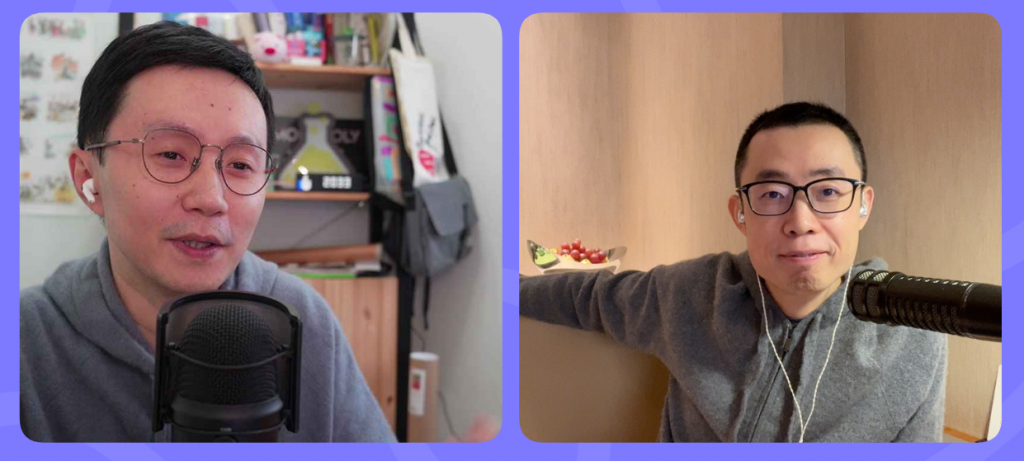
Fang Kecheng: Is this your documentary about livestream shopping during “Double Eleven“? [NOTE: “Double 11,” a reference to November 11, is an annual shopping festival held by leading e-commerce platforms in China, such as Taobao and JD.com. Livestream and pre-sale have been trends during the event in recent years.]
Huazong: I think livestream shopping is just one application. But my documentary includes various types of livestreaming. [NOTE: E-commerce is just one use of livestream, which can also involve gaming, singing and dancing and other activities.]
Fang Kecheng: I understand. Is the “fandomization”(饭圈化) you just now mentioned also a component of livestreaming? That is, following a person to buy things?
Huazong: The underlying theory of livestream e-commerce is that people come together to get great deals. They use the purchasing power of all the people in the livestream to drive the price from the manufacturers down. But the pinnacle of livestreaming shopping is fandomization. Hardcore fans, for example, will definitely make purchases.
Fang Kecheng: Are you concerned there might be political risks involved in [association with] fandom culture? [NOTE: For more on the August 2021 crackdown on fandom culture, see CMP’s analysis].
Huazong: I think the concern is definitely there, and in fact, it has already become a regulatory priority.
Fang Kecheng: You said the biggest difference between livestreaming and podcasts is that fans can participate. Do you think people’s participation is an integral part of livestreams?
Huazong: After a certain level of fandomization, you’ll actually find you have a lot of “die-hard fans” (铁粉). These fans will be fervent commenters, and they’ll send messages in the hope of connecting with you. I’m actually trying to avoid this kind of situation.
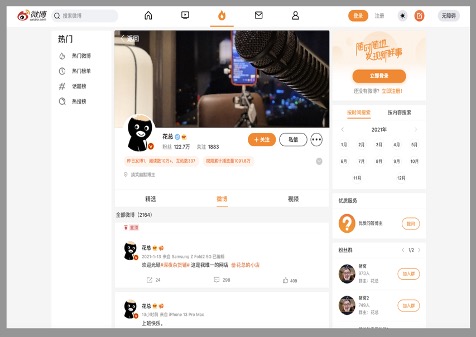
Fang Kecheng: What about your other program “People with Stories” (有故事的人). Did Weibo help you find these guests, or did you use your own connections?
Huazong: Basically, I find them by myself. This is quite a challenge. I mean, if you want to do a serialized One Thousand and One Nights style program, you have to find 1,001 guests with different backgrounds. It’s a huge challenge. A major test for a host. Now I’m wondering what the best system is to keep the conversation going.
Once when I did a media interview they gave me the title “story hunter” (故事猎人). I think I’ll have to break out of my own circle, getting out of my friend groups, to go off in hunt of different types of people to contact and a wider range of stories to tell.
Fang Kecheng: You haven’t broken out of your circle yet? I would think you would have broken out many times over by now, maybe even 10 years ago.
Huazong: Actually, I haven’t been able to broaden much in the past two years because of the pandemic. Thanks to Covid-19, I’m stuck in the same old routine. In fact, 2021 was a year of inward reflection for me. Livestreaming allowed me to maintain a certain balance – producing and keeping in touch with the bigger world out there. I’ve thought about this quite seriously, actually. If it wasn’t for livestreams, I’d simply be spinning in place.
Fang Kecheng: That’s because the pandemic has made it impossible to move about freely.
Huazong: That’s right. Because of Covid-19, I first of all couldn’t leave the country, and some of the things I want to do aren’t in China. Secondly, you’re worried every three days that the place you’re traveling to will suddenly have an asterisk [meaning you can’t travel there because it is a high or medium-risk area]. And we all know what that means. So this year has actually been quite a turbulent year.
Thanks to Covid-19, I’m stuck in the same old routine. If it wasn’t for livestreams, I’d simply be spinning in place.
Fang Kecheng: One thing I find really true is that content creators often create things that have meaning not only for their audiences, but ultimately for themselves too. Finding something to hold onto for yourself can really help keep you from shrinking into yourself.
Getting Weibo Users Livestreaming Weibo
Fang Kecheng: Next I’d like to talk about the role of the platform. You mentioned that Weibo developed this [livestream] feature based on your suggestion. How do you see the role of Weibo in your livestream?
Huazong: I think it’s been really important. In the past with livestreaming, actually Weibo never really caught up with the trend. So the impression people had of livestreaming in the past was that it was all about livestream shows or livestream e-commerce. You would find few [substantive] content creators like those we’re looking for [namely, bloggers and writers on WeChat public accounts who produce in-depth content.]
One of Weibo’s biggest transformations came when it relied on content creators to support the content environment (内容生态). So is there a possibility that this group of people could hook up [with livestreaming]? Could livestreaming become a way for these content creators to distribute content? For Weibo this is something that has to be considered from a strategic standpoint. This is why right now they’re working so hard to push the “invite to speak” (连麦) function. It’s definitely not with the thought of remaking [a platform for] livestream shows or livestream e-commerce. What they can do is to lead more and more content creators – including media institutions and individual KOLs, and people from different sectors – to distribute content through livestreaming, to interact with fans, and to inspire a media ecology on Weibo for the era of the graphic (图文时代).
Fang Kecheng: Do you think the identity of Weibo as a town square is also reflected in livestreaming?
Huazong: Certainly, especially when your livestream appears inside someone else’s notifications.
Fang Kecheng: Did Weibo sign you up exclusively, so that you won’t appear on other platforms?
Huazong: They definitely have incentives to encourage some of the top influencers to take part in co-broadcasting livestreams. But quite frankly, in terms of incentives it is better to accept advertisements.
From a business point of view, I think it is essential to have multiple platforms and to look for ways to be more efficient. But as an observer and researcher of livestream, maybe Weibo is sufficient.
Fang Kecheng: I understand. So the business side is not your main motivation.
Huazong: That’s right.
Fang Kecheng: Do you think having video is important in livestreaming? You also mentioned that many people actually listen to it in the background.
Huazong: I think it is still quite important, because listening to it in the background is just one component. There are two things people want to see. First, they want to see you. And second, they want to see the comments of other viewers. You can’t hear the comments if you’re only listening, and that means sacrificing part of the experience.
One of the questions we wonder about is what exactly is the audience looking at when they watch your livestream? I don’t have an answer yet. Weibo is now developing another feature called “push stream” (推流), which means that when two people are connected live or someone is invited to speak, and there is a screen above them that can be used to broadcast other content. Weibo now has a theory called “connecting all things” (万物皆可连麦). Not only could people be connected, but they could share other things, like PowerPoint, photos or videos – or even products – in the push stream.
Fang Kecheng: It sounds a bit like screen sharing.
Huazong: Yes, so I think the real purpose of the video will have to wait till the function becomes popular. If it’s just the camera filming itself, the meaning of the video becomes somewhat ambiguous.
Fang Kecheng: By the way, what do you think of Weibo’s future as a platform?
Huazong: It really depends on how much room we’ll have for free discussion in the future.
Fang Kecheng: Indeed. I think Weibo is a really the only social media platform that has a public square aspect to it, and nothing can replace it. So the future may depend on whether we can have such a square. When it comes to livestreaming, are there any new thoughts for 2022, be it from Weibo or something you’ve decided yourself?
Huazong: My only request is that people don’t give up on it.
Fang Kecheng’s podcast of his interview can be found here.
This interview was translated by Sara Yurich.

Fang Kecheng

